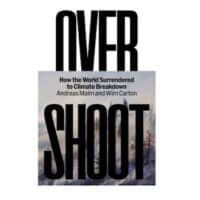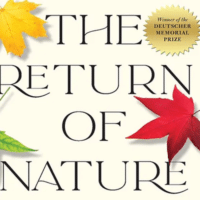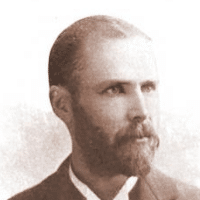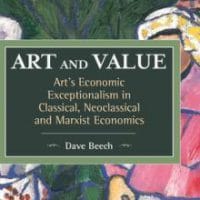-
Overshoot and the 1.5- degree celsius warming target
How much above this warming target and for how long overshoot persists will determine the likelihood of emergence of dangerous tipping points in the climate system.
-
John Bellamy Foster interviewed by Daniel Tutt on Georg Lukács and “The Destruction of Reason”
John Bellamy Foster speaks with Daniel Tutt about the work of István Mészáros and Paul Baran, contemporary irrationalist tendencies in left ecological thought, intensifying global class struggles, and the continued relevance of Georg Lukács’s The Destruction of Reason (1952), recently reissued with an introduction by Enzo Traverso by Verso in 2021.
-
Beyond the binary of race and class: A Marxist Humanist perspective
The emergence of a new generation of antiracist activists and theorists seeking to advance an anticapitalist agenda creates a new vantage point of reexamining how racism relates to the logic of capital. This essay explores sources in the work of Marx, twentieth century Marxists, and Frantz Fanon that can provide direction for overcoming the binary of class and race.
-
Marxist theory in Japan: A critical overview
I. To summarise the reception history of Marx in Japan is no small task.1 In fact, it is essentially impossible to give an adequate overview of one of the deepest, most prolific, and most variegated linguistic repositories of the Marxist tradition. Although it remains remarkably little-known in contemporary European or North American intellectual circles, Marxism […]
-
Marxism and the climate crisis (John Bellamy Foster on the ‘Historical Materialism podcast’)
Foster begins by referencing the fact that the 19th century, Newtonian view of nature, and the mechanistic, positivist approach to science originally penetrated socialist thought.
-
The Pasts and Futures of Social Reproduction as Dual Terrains Struggle
This article discusses Susan Ferguson’s Women and Work and how it advances contemporary debates about social reproduction within and beyond Marxist feminism. In particular, I emphasise its call for avoiding hierarchising struggles against oppression and those against exploitation, and for centring a dual-terrains approach. – Maud Perrier
-
Fascism, fascisation, antifascism
Fascism can be classically defined as an ideology, a movement and a regime.
-
Capital Comes to America: Charles H. Kerr & Company and the Cross-Atlantic Journey of Marx’s Master Work
On his regularly appearing “Publisher’s Notes” page of the ISR, Kerr would often emphasise that the company was organised to do just one thing–to bring out books valuable to the international socialist movement and to circulate them at prices affordable for working class readers.
-
Dialectical Confusion: On Jason Moore’s Posthumanist Marxism
What constitutes acceptable Marxist theory is a topic of endless debate. Over the past few decades, much ink has been devoted to how we should go about reconciling Marxism and ecological concerns.
-
Soviet Archaeology in Theory and Practice
A Review of Ancient Irrigation Systems of the Aral Sea Area: The History, Origin, and Development of Irrigated Agriculture by Boris V. Andrianov, and Soviet Archaeology: Schools, Trends, and History by Leo S. Klejn
-
Marxism, space and a few urban questions: a rough guide to the English language Lliterature
Starting in the late 1960s, ‘radical geography’ became a crucial avenue of intellectual innovation in contemporary Marxism. For a generation, its basic orientation was two-fold: (1) politicise ‘space’ by challenging the stranglehold of specialists (architects, urban planners, designers, military planners, regional and development officials) in the spatial disciplines, and (2) insist, simultaneously, on the importance of spatial questions within the various currents of the left.
-
Marx and the Dutch East India Company
In the final part of Capital, Volume I on “the so-called original accumulation”, Marx gives a dazzling overview of the often violent historical phenomena that contributed to the birth of the capitalist system, “dripping from head to foot, from every pore, with blood and dirt.”
-
Interview with Michael Heinrich
Think about it: when we look at our own biography, to what influenced us, why we became what we became, why we became leftists, very often there are already events in childhood. When you were a youngster, perhaps there was a teacher, who influenced you or an early friend, who opened your eyes to this or that or a book, which inspired you.
-
Praxis and critical theory
In fact, my book begins with the early Marx because he created the first version of what I call the philosophy of praxis. The key problem of this version of Marxism is what Marx called the “realisation” of philosophy.
-
Racism and the logic of capitalism
The emergence of a new generation of anti-racist activists and thinkers battling police abuse, the prison-industrial complex and entrenched racism in the US, alongside the crisis over immigration and growth of right-wing populism in Europe and elsewhere, makes this a crucial moment to develop theoretical perspectives that conceptualise race and racism as integral to capitalism while going beyond identity politics that treat such issues primarily in cultural and discursive terms.
-
Review of Art and Value by Dr. Nizan Shaked
Art and Value: Art’s Economic Exceptionalism in Classical, Neoclassical and Marxist Economics reveals the irreconcilable differences between the Marxist economic definition of the term ‘value’ and its other uses in relation to the art object. It corrects the faulty assumption that rare or historical objects bear intrinsic value, symptomatic of capitalist worldview. Beech’s analysis of art’s value-form is critical to unpacking the double ontological condition of art as both an object of collective symbolic value and a hoard of monetary value, since the two operate in mutually exclusive spheres, yet function to constitute one another. The book can help us understand the capitalist sleight of hand that allows art to flicker between two forms of being, making profit appear as value, and value appear as significance (and vice versa), the toggling between the two facilitating the transfer of commonly held symbolic value in support of the individual accumulation of wealth.
















